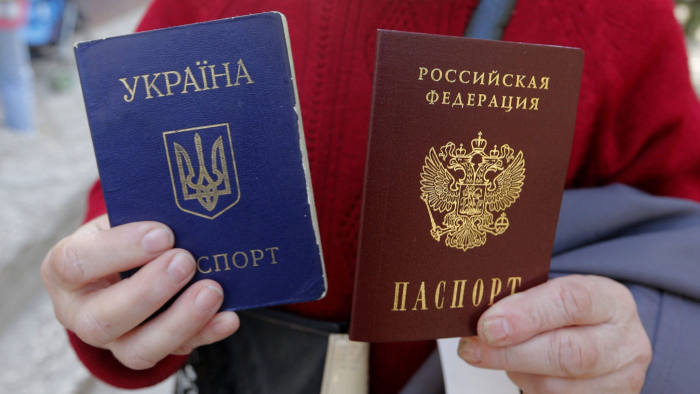
A woman holds a Ukrainian passport (L) and a Russian passport. /Reuters Photo
A woman holds a Ukrainian passport (L) and a Russian passport. /Reuters Photo
The Kremlin is poised to ditch its long-standing restrictions on dual citizenship, and the primary target is people from what Moscow considers "fraternal states," such as Belarus, Ukraine and other former Soviet republics, Russia Today reported, citing sources in a working group to reform state migration.
Analysts believe the new rules may increase the attractiveness of a Russian passport. In the past, foreigners applying for the documents have had to renounce their existing citizenship. It is also expected that it will stem the tide of depopulation, which Russia's President Vladimir Putin has repeatedly asked his government to introduce measures to stop.
In 2018, Russia's population declined for the first time in a decade, and the trend continued into 2019. However, immigration offset a considerable amount of the decline. Bill drafters hope the dual-citizenship amendment, will help attract between five and 10 million new Russian citizens, primarily from Russian-speaking populations in post-Soviet states.
The draft bill will also include abolishing the necessity for five years of continuous residence before applying for citizenship, as well as eliminating the need to prove a legitimate source of income. The law is not yet completed, and the legislation will likely be passed within the next few months.
Dual citizenship came into Russian law 27 years ago with the disintegration of the Soviet Union and the adoption of new legislation on citizenship. Article 62 of the Constitution of the Russian Federation granted the right to dual citizenship for all Russian citizens in 1993.
According to Article 62, a citizen of Russia may be a citizen of a foreign state which doesn't derogate his/her rights and freedoms and doesn't free him/her from the obligations stipulated by Russian citizenship.
However, dual citizenship status for foreign nationals can only be granted to citizens of countries that have signed a special international agreement with Russia. At the time of publication, such an agreement only exists with Tajikistan. A different type of arrangement exists with Belarus, Kazakhstan and Kyrgyzstan, providing a simplified application procedure without the need to renounce existing citizenship.